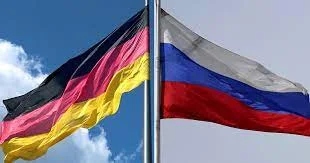"The New East Policy" Why does Germany adopt a lax policy towards Russia?
As Russia masses tens of thousands of troops on the border with Ukraine, senior leaders of Germany's Social Democratic Party are publicly asking whether the threat of invasion is "exaggerated."
As the coalition government led by Olaf Scholz faces its first major international crisis under the specter of war in Ukraine, Berlin's ambiguous policy toward Moscow reveals the German parties' attitudes toward Russia, and in particular that of the chancellor himself.
As Russia masses tens of thousands of troops on the border with Ukraine, senior leaders of Germany's Social Democratic Party are publicly asking whether the threat of invasion is "exaggerated."
Former chancellor Gerhard Schroeder, also of the Social Democrats, warns Kiev against a "show of force" and says the Russian build-up is a reaction to NATO maneuvers in the Baltic states and Poland.
Schulz's message is muddled by the din of contradictory positions of ruling party members, who asserts that Berlin is united with the Allies against the Russian threat, even though the chancellor has in fact stressed Germany's position on President Vladimir Putin.
Concerns are exacerbated by Berlin's refusal to deliver weapons to Ukraine, against the backdrop of what it described as its historical responsibilities after World War II.
On this, the weekly magazine Der Spiegel wrote that "the biggest obstacle to German foreign policy at the moment is the chancellor's party," noting that large sections of the Social Democratic Party still live in a state of "sympathy with Moscow."
In turn, the party's Secretary-General, Kevin Koenert, recently warned against "talking about possible international conflicts to make them a reality" in order to bury projects that "have always been a thorn in someone's side", in reference to the controversial Nord Stream 2 pipeline that was built to transport Russian gas to Russia. Europe, and the United States warned him.
At a time of the worst tension between the West and the Kremlin since the Cold War, Schroeder is still chairman of the board of directors of the Russian oil giant Rosneft.
Kiev Mayor Vitali Klitschko commented: "Germany should ensure that lobbyists" like Schroeder "are legally prohibited from working for the Russian regime."
"New East Policy"
The SPD's lax attitude toward Russia stems from the so-called "New East Policy" devised by former chancellor Willy Brandt.
The policy of détente and dialogue with the Soviet Union at the time constituted a break with the strategy of the first chancellor of West Germany, Konrad Adenauer, who refused to recognize communist East Germany.
In the view of many Germans, the "New East Policy" allowed for rapprochement with the eastern part and the eventual reunification of Germany, a policy that today has become at the core of the identity of the Social Democrats.
Even Angela Merkel of the Christian Democratic Union (CDU), has advocated dialogue and economic relations as a way to rein in Russia.
During the 16 years of Merkel's tenure, economic pragmatism also prevailed. For example, she defended the Nord Stream 2 pipeline and insisted it was a business.
Combined with Germany's legacy of war guilt, this ingrained attitude toward Russia reinforced Berlin's reluctance to export arms.
A poll published this week showed that 59% of Germans surveyed support the "Schulz" government in its refusal to arm Ukraine, compared to only 20% who oppose this position.
Tags:
britain
europe
european countries
european union
france
paris
russia
ukraine
ukraine conflict
ukraine war
ukrainian coup
ukrainian crisis

